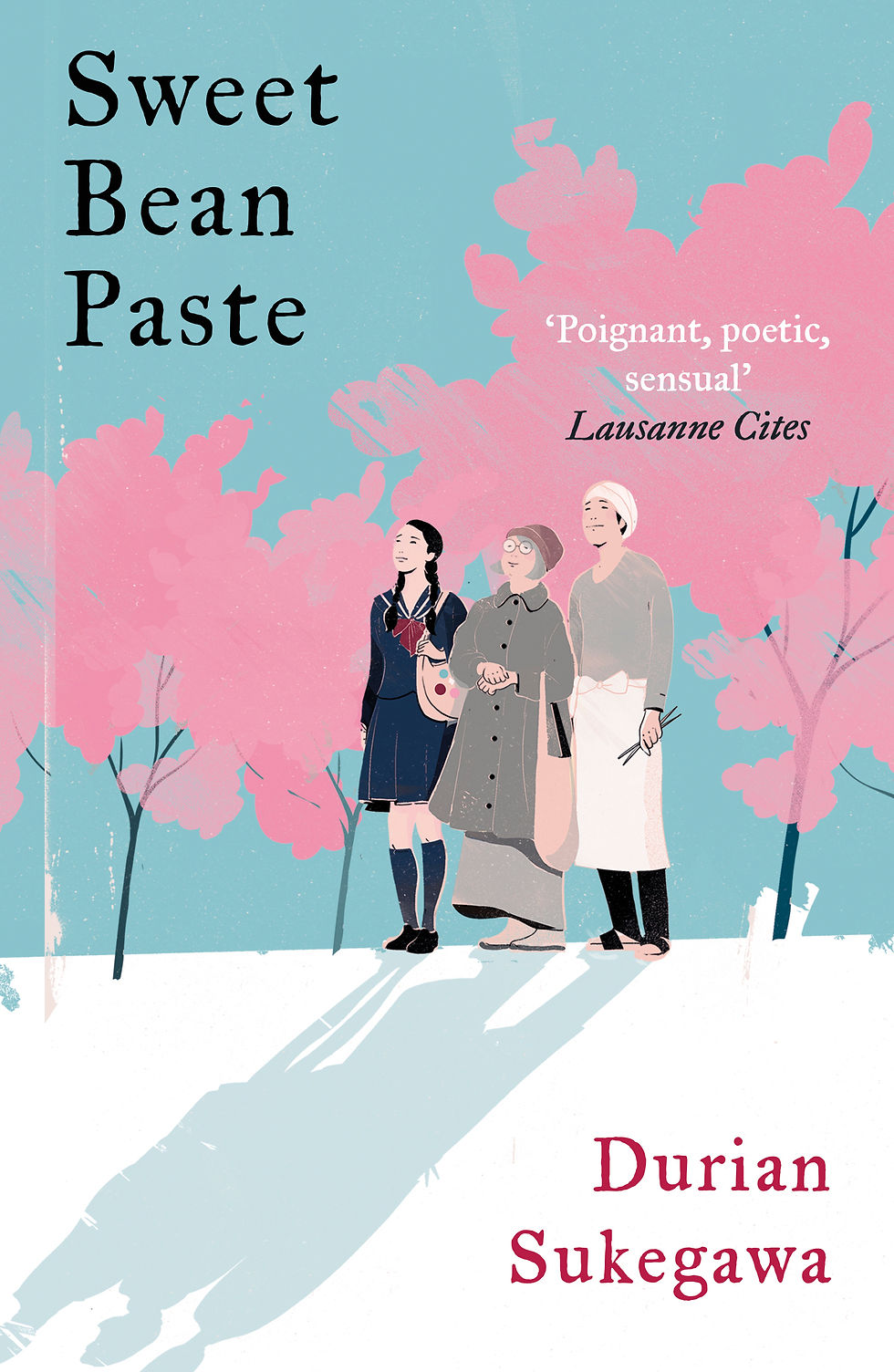Sweet Bean Paste | Review
- Ashley Mongrain
- May 4, 2023
- 3 min read

Rating - ⭐⭐⭐⭐⭐
"Sentaro has failed. He has a criminal record, drinks too much, and his dream of becoming a writer is just a distant memory. With only the blossoming of the cherry trees to mark the passing of time, he spends his days in a tiny confectionery shop selling dorayaki, a type of pancake filled with sweet bean paste.
But everything is about to change.
Into his life comes Tokue, an elderly woman with disfigured hands and a troubled past. Tokue makes the best sweet bean paste Sentaro has ever tasted. She begins to teach him her craft, but as their friendship flourishes, social pressures become impossible to escape and Tokue's dark secret is revealed, with devastating consequences."
Sweet Bean Paste is a standalone fiction novel written by Durian Sukegawa and translated by Alison Watts.
To be honest, I didn't know much about this book before going into it. I thought it was a book that would focus on found family and, well, red bean paste. What I ended up getting was far more than I could have ever imagined. I didn't think that this would be the kind of book I would give a full rating to, seeing as it is something I rarely do, but something about this book told me it deserved it.
Technically speaking, in terms of enjoyment, I would actually rate it around a 3.5, so what was it that drove me to give it 5 stars? As I said, I don't give out that rating lightly, in fact very few books have received that from me since I am a harsh critic, but I couldn't deny the emotions this book made me feel. That is mostly due to what I mentioned earlier, in that this book ended up being far more than I expected it to be, as it breached the topic of leprosy, or Hansen's disease, in Japan.
I know that Japan is very conservative and it doesn't handle any kind of 'other' very well, nor do they really own up to their past actions, so it didn't surprise me to see how someone like Tokue was treated because of her ailment. At the same time though, the story pulled me in nonetheless because it was an interesting topic to read about, and because of the way the author handled it by combining the more dark side of the story with the more emotional.
By the end of the story, I had to sit there for a second to soak it all in because of how powerful it was. Certain lines really ended up immortalizing themselves in my brain because of how striking they were, lines such as - "He turned around and saw the stone cairn at the charnel house. Four thousand souls. Four thousand people who never went home."
Even the author's motivation to write this story was based on powerful but dark words, as in a Q&A he mentioned when asking people what was the meaning of life, many replied that if you were of no use to society, then there was simply no point in living, which went to show a lot of societal and familial views in the country. For me, this goes to show how good of a writer Sukegawa was based alone on his responses in this Q&A and his views on life and how he transformed that into a book about social commentary and so much more. (If you want to read the interview, you can click the highlighted pink words).
All in all, this book surprised me in the way it was about to move me despite my enjoyment level being just above mid the entire time. Will it move you in the same way, maybe not, but I would definitely say give this book a shot if you are looking for something both light and heavy at the same time.
Comments